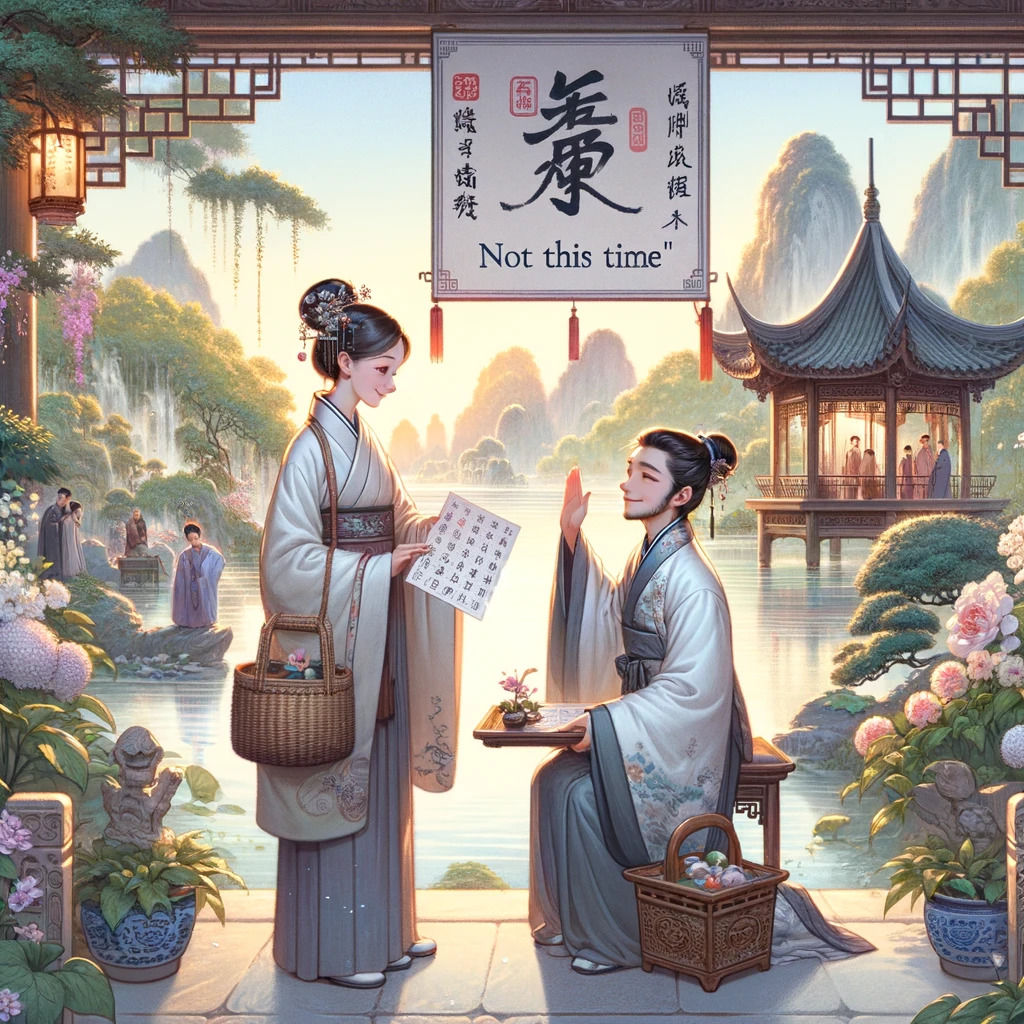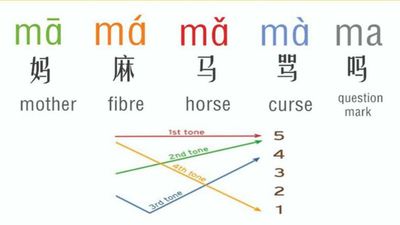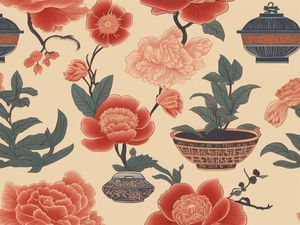Mastering the Art of 'Not This Time' in Chinese: Polite Declines and Cultural Grace
Learn how to say 'not this time' in Mandarin Chinese with grace and politeness. Discover phrases, nuances, and cultural insights to decline invitations while keeping future possibilities open

Mastering the Art of 'Not This Time' in Chinese: Polite Declines and Cultural Grace
Hey there, language adventurers! Today, we're diving into a phrase that's as handy as your passport when navigating the Mandarin-speaking world: "Not this time." You know, there are moments when you need to gracefully decline an invitation, perhaps to climb the Great Wall for the third time this week or to join another late-night karaoke session. It's not just about saying no; it's about weaving your refusal into the fabric of politeness and cultural respect that's so integral to Chinese communication.
Understanding the nuanced ways to express "not this time" is like holding a key to unlock deeper, more meaningful exchanges. It's about adding layers of subtlety to your conversations, showing that you're not just reciting phrases from a textbook but truly engaging with the language and its cultural heartbeat. This isn't just language learning; it's about building bridges, making connections, and navigating social landscapes with grace and understanding.
So, whether you're sipping green tea with new friends or finding your way through the bustling streets of Shanghai, mastering these phrases can turn a simple no into an opportunity to deepen relationships and share a moment of genuine interaction. Let's explore how saying "not this time" can open doors to a world of respectful communication and heartfelt exchanges in Mandarin Chinese.
First off, we need to get friendly with two key players on the negation team: "不" (bù) and "没" (méi). These little words pack a punch in changing the color and tone of a sentence, turning an affirmative into a no-go.
The Power of 不 (Bù) and 没 (Méi)
不 (Bù) is your go-to for negating the general present and future. Think of it as the steadfast guardian of the present, always ready to gently hold back what's yet to come or what could be. So, when you're about to say "This time, I can't," "不" steps in to give your sentence that respectful decline.
没 (Méi), on the other hand, is more about negating the past. It's like a kind bridge to what has already happened, softly saying, "This didn’t occur." But in the context of "not this time," it's a bit less common unless you're referring to something that didn't happen this time but might have before.
Crafting Your "Not This Time"
Armed with "不" and sometimes "没," you're ready to construct sentences that convey "not this time" with the finesse of a seasoned speaker. For example:
• "这次不行" (Zhè cì bù xíng) — This time, it's not OK (or possible).
• "这次我不去" (Zhè cì wǒ bù qù) — This time, I'm not going.
In these phrases, "不" (bù) is your shield, warding off any possibility in the here and now, ensuring your message is clear but conveyed with softness and respect.
Understanding when to use "不" versus "没" is like choosing the right brush for a calligraphy stroke; it’s about precision and intention. Your choice sets the tone and clarity of your message, reflecting your growing sensitivity to the nuances of Mandarin.
So there you have it, friends. With "不" (and occasionally "没") in your linguistic toolkit, you're well on your way to expressing "not this time" with the kind of grace and precision that makes Mandarin such a beautifully expressive language. Here’s to your next conversation flowing as smoothly as the Yangtze River, even when you’re taking a raincheck!
The Classic Declines
"这次不行" (Zhè cì bùxíng): Picture this—you're invited for another round of late-night street food hopping, but your stomach is pleading for mercy. "这次不行" is your gentle but firm way of saying, "This time, no way." It's like wrapping your decline in a silk scarf; it’s soft but clear.
"这次不可以" (Zhè cì bù kěyǐ): Now, imagine being asked to join a spontaneous hike up Mount Tai on a day you've dedicated to visiting a museum. "这次不可以" translates to "This time, not possible," serving as your respectful and polite bow-out. It's like a respectful handshake, declining the offer but leaving a positive impression.
Nuancing Your No
The beauty of Mandarin lies in its dance of subtleties. Slight tweaks to your decline can soften the blow or add layers of meaning:
• Adding "很抱歉" (hěn bàoqiàn, I'm very sorry) before these phrases ups the ante on politeness. It shows you're not just declining but also feeling regretful about it. It’s like saying, “I’m sorry to miss out on this.”
• Tagging on "下次吧" (xià cì ba, next time) at the end turns your no into a raincheck. It’s not just "not this time"; it's a promise of future adventures together. It keeps the spirit of camaraderie alive, like leaving a door ajar for next time.
• For a softer touch, consider "可能这次不行" (kěnéng zhè cì bùxíng, maybe this time it won't work). The addition of "可能" (maybe) injects a dose of uncertainty, softening the decline. It’s like saying, "I wish I could, but..."
The Art of Declining
Remember, in Mandarin, how you say something often carries as much weight as what you're saying. Your tone, the context, and your relationship with the person all play into how your message is received. Declining an invitation in Mandarin isn't just about saying no; it's an opportunity to express respect, maintain harmony, and foster relationships.
So, there you have it—turning down invitations in Mandarin doesn't have to feel like closing doors. With "这次不行" and "这次不可以," plus a sprinkle of variations, you're well-equipped to navigate the social seas of Mandarin-speaking environments. Each decline is a delicate brushstroke in the larger picture of your linguistic and cultural journey, adding depth and color to the way you communicate and connect. Here's to mastering the art of polite refusal, keeping every "no" as warm and open-hearted as a future "yes."









